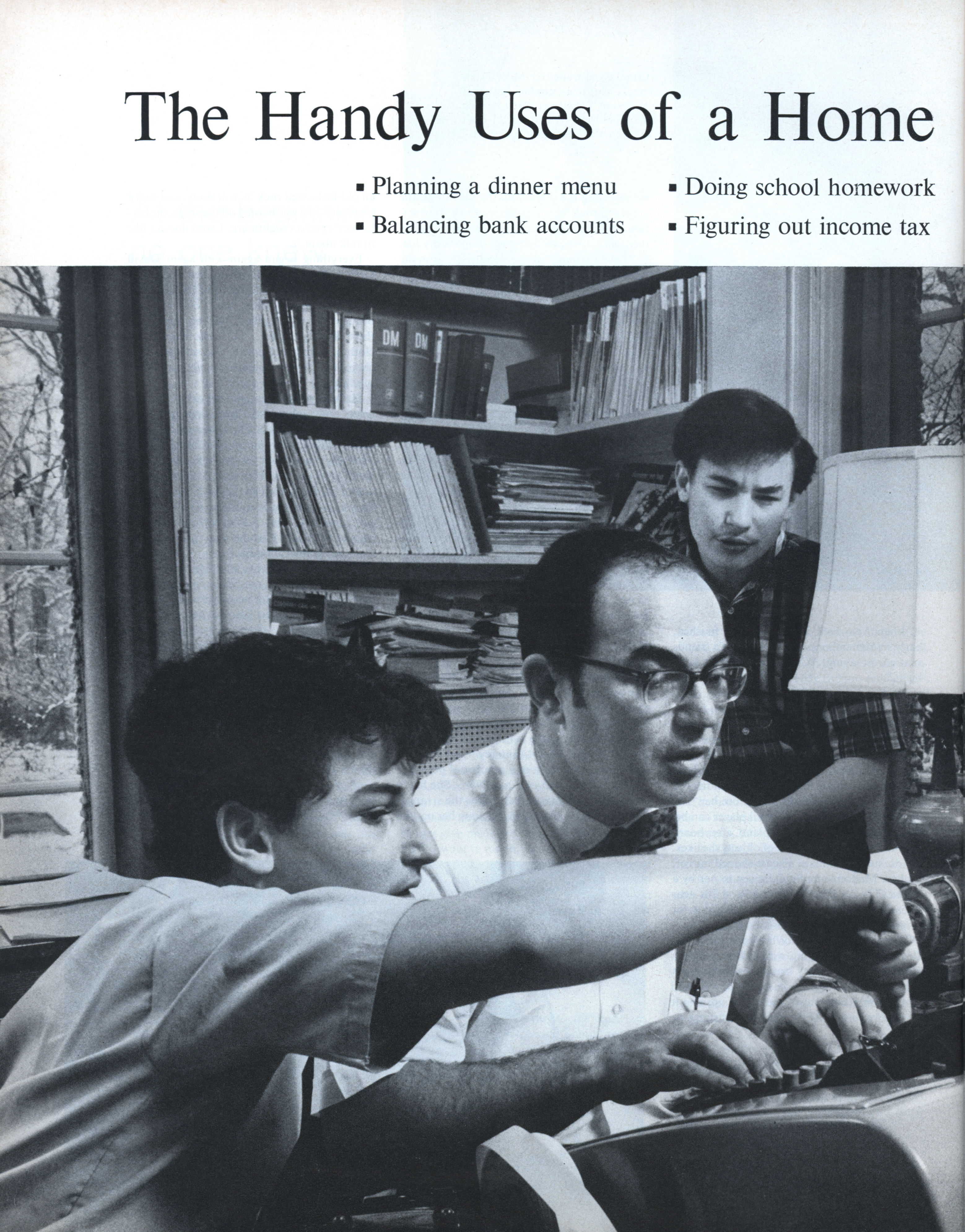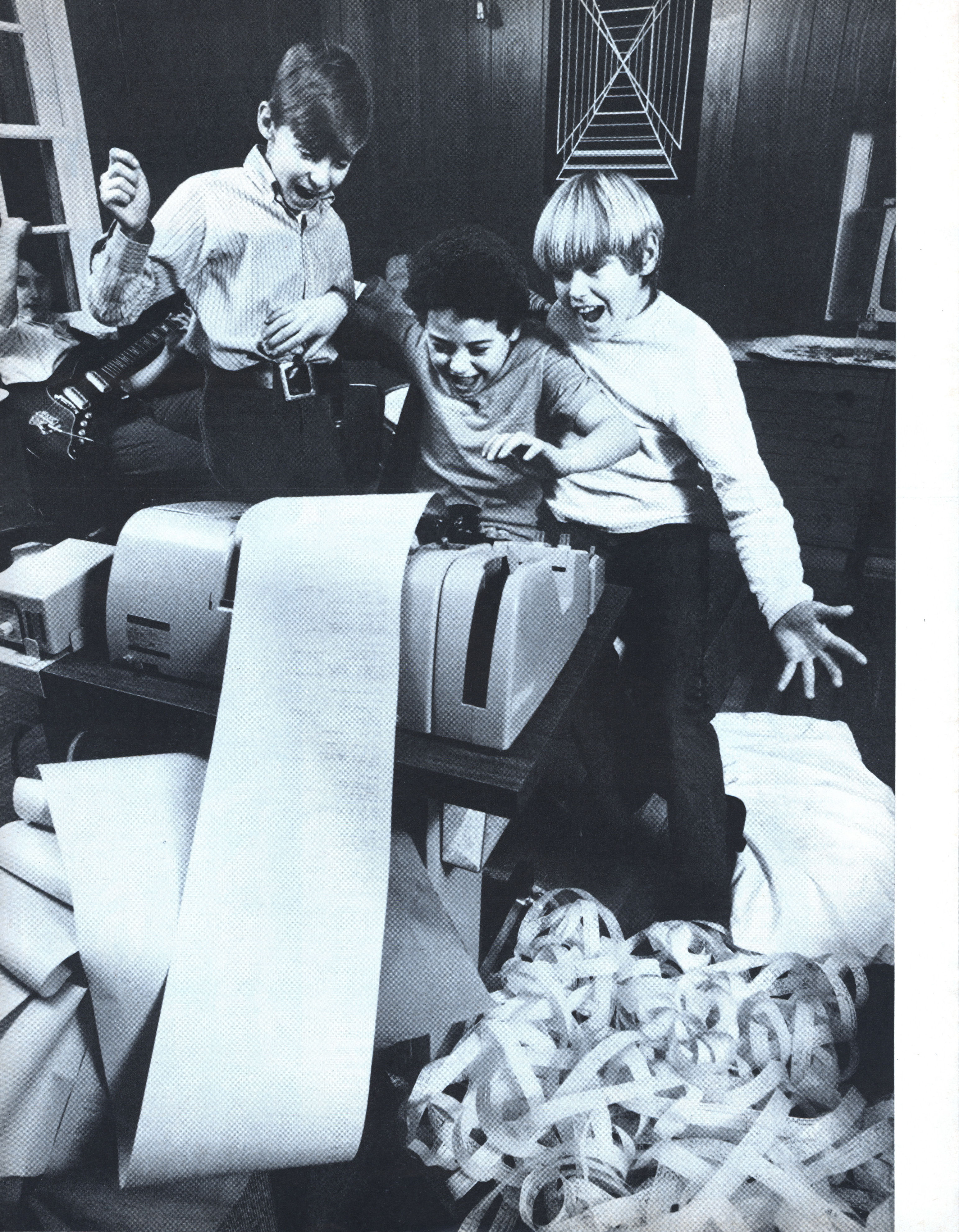An article I found in a 1970 Life magazine is probably the earliest profile I’ve ever read of an average American family (well, a relatively affluent one) having a networked home computer. An added bonus is that it was written by Michael Shamberg, a guerilla filmmaker and journalist who has gone on to produce some crazy documentaries and Pulp Fiction and Django Unchained. The opening:
“Computers for the home have been envisioned by science-fiction writers and engineers ever since a huge, unwieldy prototype was developed 25 years ago. The whole futuristic age the prophesied, with an omnipotent electronic monster named Horace in every living room, is still a long way from realization, but compact consumer computers have quietly entered the household. While the market hardly rivals TV sets or refrigerators, the computer-as-home-appliance is now more than just a toy for the wealthy or a mysterious instrument for technical specialists.
Those pioneer families who have one, like the Theodore Rodmans of Ardmore, Pa., have discovered their obedient machine can perform a large variety of useful functions. Dr. Rodman originally brought it home for medical research, but then his family found it could plan mortgage payments, help out with homework, even play with the children. Although the cost is still high, computers like theirs have come within possible reach of a two-car family budget. A small, self-contained model is available for $8,000, complete. The Rodmans’ computer system, called time-sharing, uses a Teletype terminal connected to a big central unit via telephone. It costs $110 a month rent, plus $7.50 per hour of use.
The Rodmans’ computer is no anthropomorphic robot that can accomplish physical feats. It cannot flip the light switch, monitor the thermostat or do the cooking. Rather, it is a sophisticated mental appendage with a capacity for problem-solving that is limited only by the family’s imagination. Neither Dr. Rodman nor his family had ever operated, much less programmed, a computer before a terminal was installed in their home last August. Since then they have assigned it so many chores that Mrs. Rodman says, half seriously, ‘It’s really become a member of the family.’
‘For me, the main physical effect of having a computer at home is that I’m able to spend a lot more time with my family,’ says Dr. Rodman, who is a lung specialist on the faculty of Temple University medical school in Philadelphia. ‘For all of us the real impact is mental. Programming a computer is like thinking in a foreign language. It forces you to approach problems with a high degree of logic. Because we always have a computer handy, we turn to it with problems we never would have thought of doing on one before.'”
Tags: David Rodman, Kevin Rodman, Michael Shamberg, Ruth Rodman, Theodore Rodman


